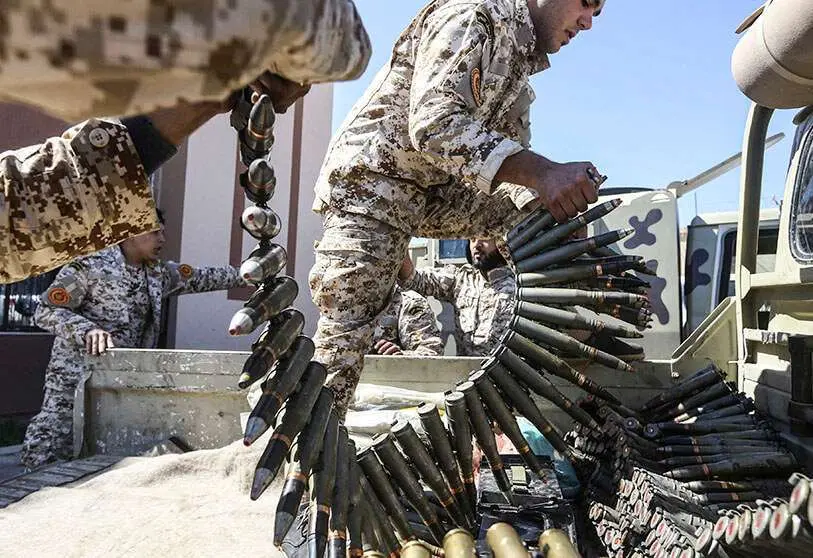EU sanctions three companies for violating the Libyan weapons embargo

The European Union (EU) has decided to impose sanctions on three companies from Turkey, Jordan and Kazakhstan for not respecting the United Nations (UN) arms embargo on the civil war in Libya, European diplomats announced on Monday.
EU sources said that these three companies, along with two Libyan citizens, had taken an active part in the process of handing over war material to participants in the conflict that has been raging in the North African country since 2014, and which is being waged by factions seeking power after the fall of Muammar al-Qadhafi's regime in 2011. Due to these punitive measures, the assets of these firms in Europe will be frozen and no European company will be able to maintain commercial relations with them.
According to information received from Europe, these sanctions linked to the violation of the embargo imposed by the UN had been defined on Friday at the level of ambassadors to the EU, and this Monday they were confirmed by the European Ministers of Foreign Affairs, meeting in Brussels.
This is the first time that the EU has applied sanctions for violation of an arms embargo, as until now it has been limited to supporting UN decisions on the issue.
The United Nations' initiative to halt the arms build-up on Libyan territory was aimed at reducing the level of hostilities in a country like Libya, which has been plunged into political chaos and has become a genuine failed state. The civil war that the North African nation is experiencing is pitting the National Accord Government (GNA), led by Prime Minister Fayez Sarraj, against the Libyan National Army (LNA), commanded by Marshal Khalifa Haftar and associated with the other eastern executive based in Tobruk.

Libya has become the scene of crossed interests of various foreign powers that have their own objectives in Libyan territory. The conflict has become internationalised and foreign nations intervene by sending groups of mercenaries to support the military forces on the ground. On the one hand, the GNA, which is based in the capital of Tripoli, is supported by Turkey, Qatar and Italy, and is internationally recognised by the UN itself. Meanwhile, the LNA is supported by Saudi Arabia, United Arab Emirates, Egypt (these three big rivals of Qatar), Russia and France.
Turkey takes part by sending paid soldiers from Syria who, according to various sources, are attached to groups that were linked in the past to Jihadist entities such as Daesh or Al-Qaeda. Meanwhile, Russia intervenes through the Wagner Group, a group of professional mercenaries closely linked to the Kremlin, as has also been pointed out by different media.
The Turkish president, Recep Tayyip Erdogan, sealed a pact at the end of last year with Fayez Sarraj to guarantee Ottoman military support for the GNA; in addition, he distributed highly valuable economic areas in the Mediterranean. This clashed head on with the interests of Greece and the EU, which denounced this agreement for violating the maritime borders of the Greek islands.
Turkey's participation has been key because it put a brake on the favourable trend of the LNA, which dominates the south and east of the country and launched an offensive on the Tripoli bastion in April 2019, for which it had gained considerable ground, and whose declared aim was to put an end to the pockets of Jihadist terrorism housed among the Tripolitan forces. Following the Eurasian country's entry into action, the militias linked to the ANG recovered their positions and even threatened enclaves such as Sirte and Jufra, which are regarded as red lines by neighbouring Egypt, which supports Khalifa Haftar and even warned of the intervention of its own armed forces if these limits were exceeded.
Despite everything, before these sanctions were decreed by the EU, its high representative for foreign policy, Josep Borrell, considered on Monday that there was reason for "cautious optimism" in the Libyan crisis. "I see a reason for cautious optimism. There is positive momentum, there is a ceasefire, we need to use it", said Borrell on his arrival at the meeting of EU foreign ministers, which deals with the situation in Libya, among other issues. A ceasefire that was agreed by Sarraj's ANG and Tobruk's other eastern government, but whose position was not made known by Marshal Haftar.










